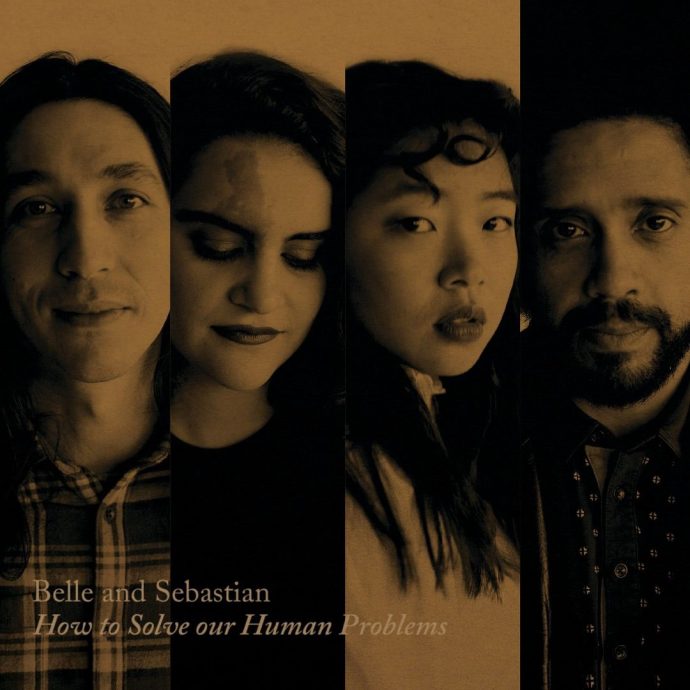Belle and Sebastian’s new EP, How To Solve Our Human Problems (Part 1), finds the Scottish indie pop outfit returning to an album release pattern similar to the one they utilized twenty years ago. The unveiling of fifteen new songs, packaged initially as three sets of five tracks to be subsequently released as a single disc collecting all three EPs, is an interesting move this far into a career, one that could be interpreted as both a way to lure apprehensive new listeners and a cash-grab aimed at the band’s passionate following.
HTSOHP (Part 1) opens with the lackadaisically retro “Sweet Dew Lee,” an unimpressive, mundane duet featuring Stevie Jackson and frontman Stuart Murdoch. It’s a disappointing start that foregoes the sensitive, sincere lyrics and trademark hooks the band has become known for over the years, opting instead for a bland three-chord verse and an uninspired vocal performance from Jackson. At one point, Murdoch actually sings, “If you could see me now, you would laugh, and say ‘How sad’.” Indeed. “We Were Beautiful” is only slightly better, utilizing a quick beat over synths and an uplifting chorus. It’s a moment reminiscent of something from their appropriately titled 2015 full-length, Girls in Peacetime Want to Dance.
“Fickle Season” features vocals from Belle and Sebastian’s violinist, Sarah Martin, who ends up sounding bored and indifferent throughout. The irredeemable track lacks any kind of chorus, instead offering awkward and misplaced glockenspiel and flute solos. Similarly to the EP’s first two tracks, this pathetic clunker is followed by the only slightly better “The Girl Doesn’t Get It”, which again sounds like something left over from the GiPWtD sessions. The entire painful ordeal is concluded with the five-and-a-half-minute “Everything Is Now”, a droning, mostly instrumental track that feels like filler.
In their twenty-plus-year career, Belle and Sebastian have been responsible for some truly amazing, high quality indie pop, drawing inspiration from acts as diverse as Simon and Garfunkel and Thin Lizzy. Unfortunately, How To Solve Our Human Problems (Part 1) is a disappointing bore-fest, due mostly to lazy songwriting and undynamic production. Hopefully parts 2 and 3 of this series offer something more akin to the band’s best material.
Rating: 3.0/10

